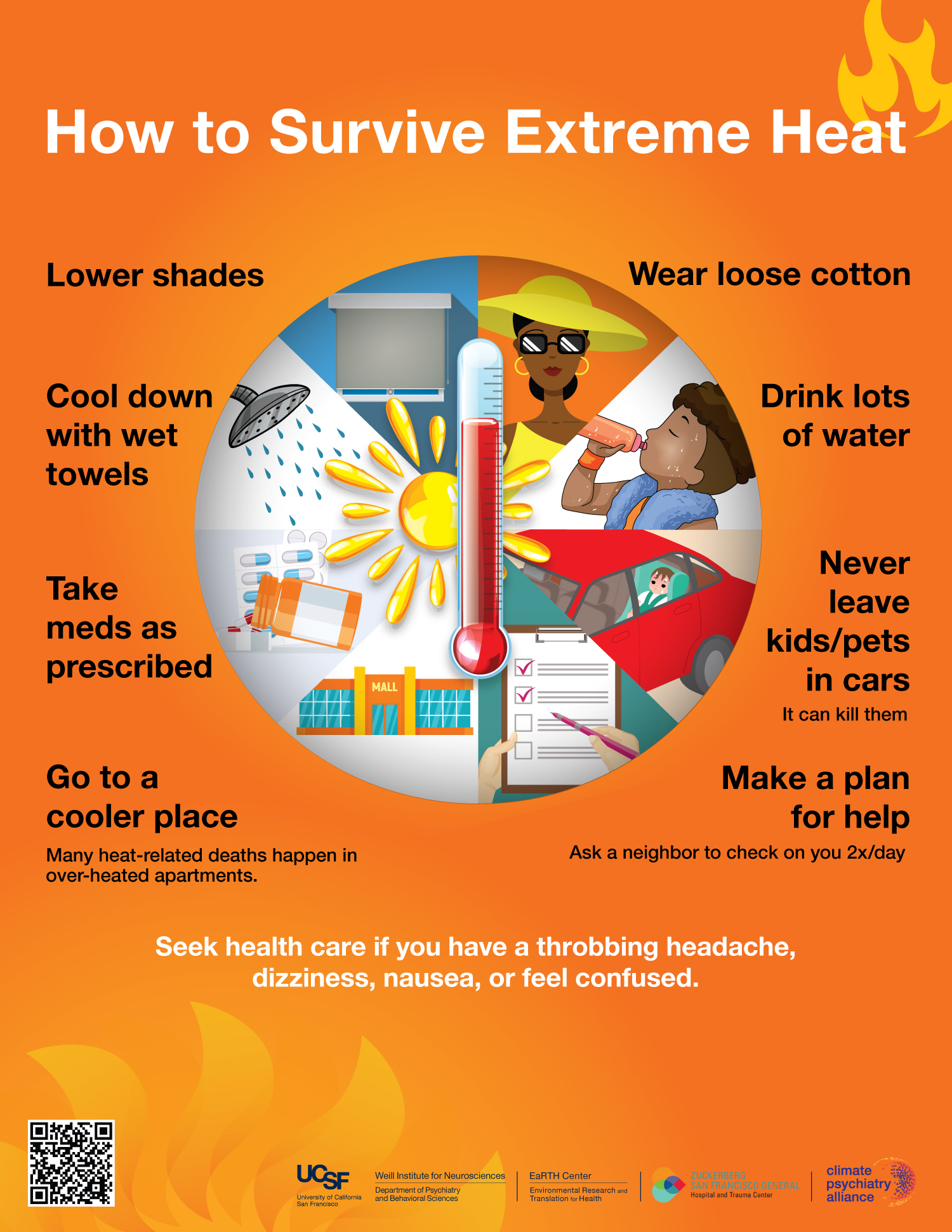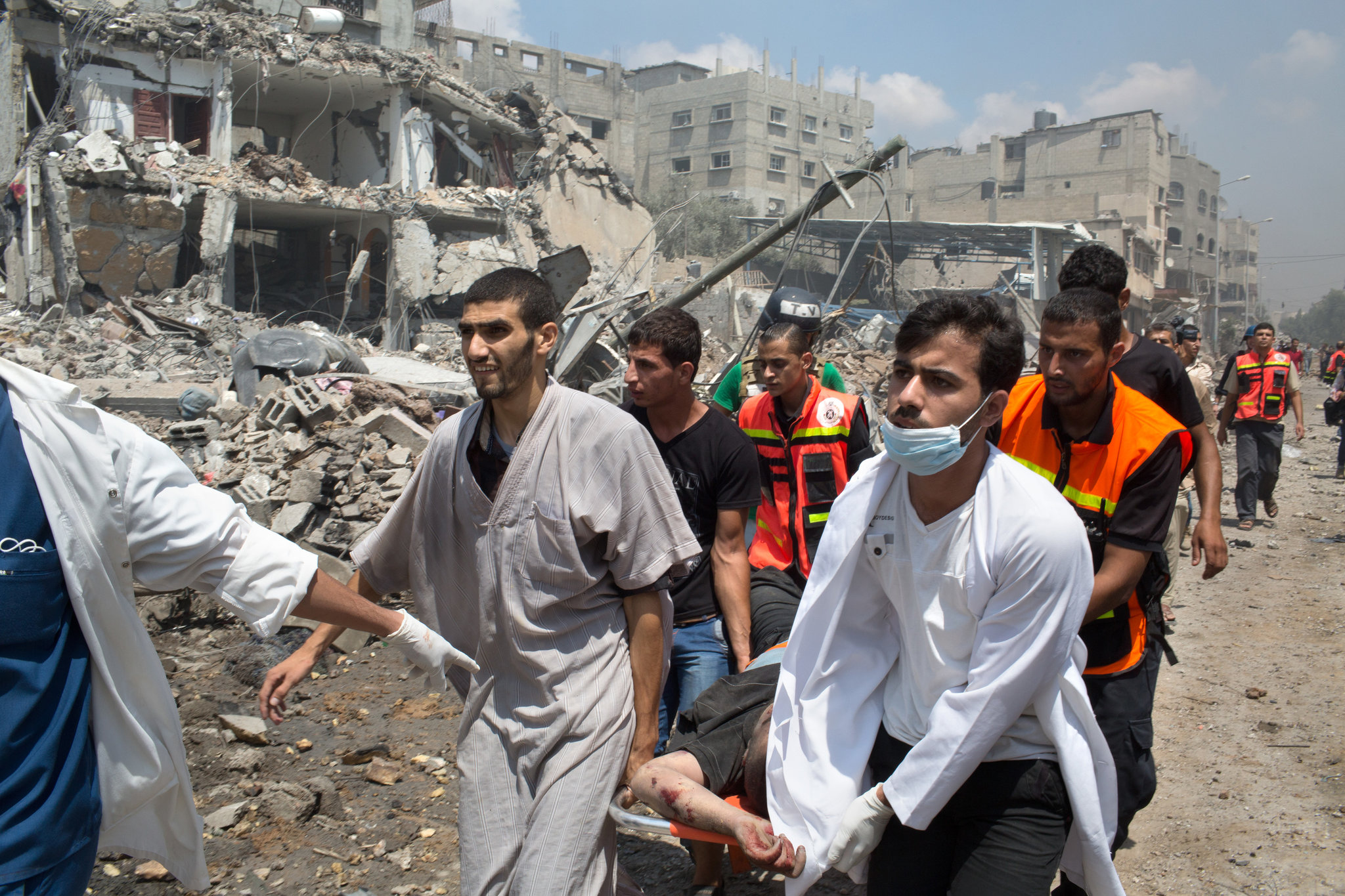Heatwave Warning: Health Department's Advisory On Extreme Temperatures

Table of Contents
Recognizing Heat-Related Illnesses
Extreme heat can lead to various dangerous illnesses. Understanding the symptoms is crucial for timely intervention and preventing serious complications.
Heat Exhaustion
Heat exhaustion is a milder form of heat-related illness, but it's still important to address it promptly.
- Heat exhaustion symptoms: Heavy sweating, weakness, dizziness, headache, nausea, muscle cramps, and paleness are common indicators. You might also experience cold, clammy skin.
- Heat exhaustion treatment: Move to a cool place immediately. Drink plenty of water or an electrolyte beverage to rehydrate. Rest is essential. If symptoms persist or worsen (e.g., vomiting, persistent dizziness), seek medical attention. Don't ignore the warning signs!
Keywords: heat exhaustion symptoms, heat exhaustion treatment, heat illness, heatwave symptoms
Heat Stroke
Heat stroke is a life-threatening medical emergency. It requires immediate medical intervention.
- Heat stroke symptoms: A dangerously high body temperature (above 103°F or 39.4°C), confusion, seizures, loss of consciousness, rapid pulse, and shortness of breath are key signs. Skin may be red, hot, and dry.
- Heat stroke treatment: This is a medical emergency. Call emergency services immediately (911 or your local equivalent). Do not attempt to treat heat stroke at home.
Keywords: heat stroke symptoms, heat stroke treatment, heatstroke emergency, heatwave emergency
Other Heat-Related Illnesses
Besides heat exhaustion and heat stroke, other heat-related illnesses can occur during a heatwave.
- Sunstroke: Caused by prolonged sun exposure, sunstroke presents with headache, dizziness, nausea, and potentially fever. Seek shade and medical attention if needed.
- Heat rash: Prickly heat is a skin irritation caused by excessive sweating. Keeping cool and dry can help.
- Dehydration: This is a common consequence of heat exposure. Ensure adequate fluid intake.
Keywords: sunstroke, heat rash, dehydration, heatwave symptoms, heat illness
Protecting Yourself During a Heatwave
Proactive measures are crucial for protecting yourself and your loved ones during a heatwave.
Stay Hydrated
Staying hydrated is paramount during periods of extreme heat.
- Drink plenty of fluids: Drink water regularly, even if you don't feel thirsty. Electrolyte drinks can help replenish lost salts.
- Avoid sugary drinks and alcohol: These can actually dehydrate you further.
Keywords: hydration, heatwave hydration, drinking water, heatwave safety tips
Limit Outdoor Activities
Reduce your exposure to the intense heat, especially during the hottest part of the day.
- Avoid strenuous activities: Postpone intense exercise or work until cooler hours.
- Dress appropriately: If you must be outdoors, wear light-colored, loose-fitting clothing to stay cool. Wear a wide-brimmed hat and sunglasses for sun protection.
Keywords: heatwave safety tips, outdoor safety, heatwave precautions, heatwave relief
Stay in Cool Places
Find ways to stay cool and reduce your body temperature.
- Air-conditioned spaces: Spend time in air-conditioned environments like libraries, malls, or community centers.
- Utilize fans and cool showers: If air conditioning isn't available, use fans and take cool showers or baths to lower your body temperature.
Keywords: staying cool, air conditioning, heatwave relief, heatwave safety
Check on Vulnerable Individuals
Certain populations are more susceptible to the dangers of extreme heat.
- Elderly people: Regularly check on elderly neighbors or relatives.
- Young children: Ensure children are supervised and kept cool.
- Individuals with chronic illnesses: Those with heart conditions, respiratory problems, or other chronic diseases are at increased risk.
Keywords: vulnerable populations, heatwave elderly, children and heat, heatwave precautions
Knowing When to Seek Medical Attention
Don't hesitate to seek medical attention if you experience concerning symptoms.
- High fever: A temperature above 103°F (39.4°C) is a serious sign.
- Confusion or disorientation: These can be signs of heat stroke.
- Loss of consciousness: This is a medical emergency.
- Seizures: Seek immediate medical help.
- Persistent vomiting: If vomiting persists after attempting to treat heat exhaustion, seek medical attention.
Early intervention is critical. Don't wait for symptoms to worsen.
Conclusion:
This heatwave warning underscores the serious health risks associated with extreme temperatures. By following these precautions and recognizing the signs of heat-related illnesses, you can significantly reduce your risk. Remember to stay hydrated, limit outdoor activities during peak heat, and seek medical attention if necessary. Stay informed about the ongoing heatwave warning and take proactive steps to protect yourself and your community. Heed this heatwave warning and stay safe.

Featured Posts
-
 Schools In Manila Closed Due To Intense Heat Bangkok Post Update
May 13, 2025
Schools In Manila Closed Due To Intense Heat Bangkok Post Update
May 13, 2025 -
 How To Make Spring Break Better For Kids Fun Activities And Planning Tips
May 13, 2025
How To Make Spring Break Better For Kids Fun Activities And Planning Tips
May 13, 2025 -
 2024 100
May 13, 2025
2024 100
May 13, 2025 -
 Prolonged Nightmare The Human Cost Of The Gaza Hostage Situation For Families
May 13, 2025
Prolonged Nightmare The Human Cost Of The Gaza Hostage Situation For Families
May 13, 2025 -
 Miami Heat Fans Find Solace In Nba Tankathon During The Off Season
May 13, 2025
Miami Heat Fans Find Solace In Nba Tankathon During The Off Season
May 13, 2025
